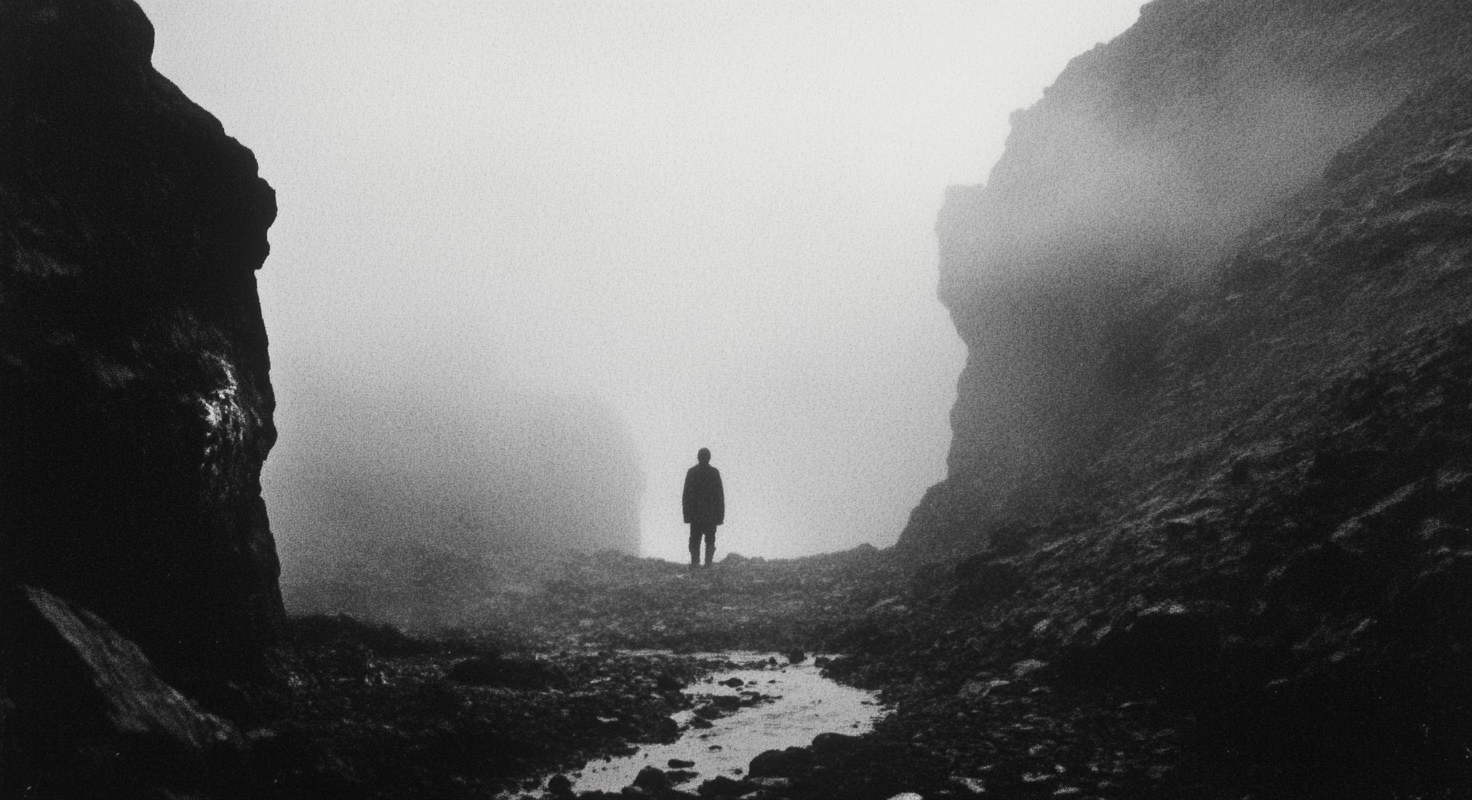Documentary specificity.

This text was originally a statement delivered in the opening remarks for a forum on the November 2024 United States election. The forum was hosted by the directors of centers and labs of the College of Media, Communication and Information at the University of Colorado Boulder on December 5, 2024.
This University, including the College of Media, Communication and Information, is the problem. I will not absolve us by relegating our complicity to a symptom of some greater societal neurosis. What we are witnessing in our politics, here and elsewhere, is not only misogyny, racism, fascism, and ignorance, but yet another refutation of the way neoliberal institutions operate, internally and externally, on the core and its periphery. Where we should be tasked with using the tools of our disciplines to organize communities and build knowledge, we centralize resources and demand conformity. When we achieve our targets, the goalposts are moved and we have to start over. When people ask for justice, we hire another administrator. We are spreadsheet warriors, and we claim that budgets are reality, credit hours are currency, and worse still, we trade directly in a particularly insidious anti-intellectualism dressed up in words like public scholarship, accessibility, and inclusivity, all while deploying crushingly punitive systems of ranking, evaluation, and grading. We continue to fail our students with false promises, leaving them disaffected and alienated. Instead of coherent pedagogies, we implement deep mazes of bureaucratic proceduralism that reward institutional navigation over academic rigor. Rather than the time and tools actually needed to conduct our work, we are shackled by clerical time-drains designed to curb our spending on meaningful research, and we are rewarded with multi-purpose rooms that serve no one in particular by claiming to serve everyone in general. In our promotion and tenure procedures we too often value reach over impact, volume over quality, prestige over service, and publicity over community. The lie is that this is all somehow practical and realistic. It is not. We are told that it is efficient, but what is the value of efficiency? Efficiency is a decision, not a moral obligation. Efficiency is teleological, and as such, must always spring from an assumption that there are ends to our work, and that the means can or should be streamlined to meet them. We should reject such a telos, and as such we must resist efficiency at all costs. Following John Cale’s Paris 1919, I would argue that the efficiency imperative was fully thrust into ordinary life as the result of the Paris Peace Conference, which formally established political globalization in the form of the League of Nations in the wake of World War I, a legacy we live with, extended from modern/colonialism, until this day.
The pressures of such a globalized society, whether under capitalism or any other system that claims universal relations, are immense. These are not simply economic pressures, but cultural and affective. Rights-based politics derived from such ideologies are failing the world over, not because people do not want rights, but because rights have no coherent source other than the members of a priestly caste who make universal claims about all people in all places regardless of situation or circumstance. The affect this produces is deeply damaging. It is damaging to justice, damaging to human and nonhuman rights, damaging to all three of Guatarri’s ecologies, and damaging to democracy. But this damage can be healed, the rubble can be cleared, and we can learn how to live together again.
It will take time. I maintain that Trump’s reelection is the result of grassroots movement-building based in practical applications of power to daily life, while we continue to offer solutions for an abstracted global citizenry for which every member has direct access to universal rights and freedoms that are supposed to be inalienable. Well, it turns out that they are alienable, and its time to take this fact much more seriously. To cast off earthly materialisms of the quotidian and submit to some cosmic, universal order of morality (see any universal declaration of human rights, etc.) is ideology grounded in an Abrahamic theological framework that demands we deny the specificity of our lives, and not-so incidentally, our loves, in order to submit fully and completely to some God, secular or otherwise. Even if this ideology is nominally good, either in its intention or its articulation, it remains bound by inherently precessional qualities that map and reframe its subjects through its warping lens. Not all of its subjects appreciate this.
In her 1988 essay on situated knowledges, Donna Haraway challenges us “to become answerable for what we learn how to see.” It is not so much that we bear responsibility for what we happen to see, which is, of course, a product of what we look at coupled with the circumstances of our looking. Yes, we must assume responsibility not only for what we see, how we see it, and from what vantage point we are able to take up, but also for how our eye is trained to look and what it is trained to look for. Vision, here, is a metaphor. A metaphor for experience that is activated by the agency and autonomy granted by partial perspective, by the inherent incompleteness of identity, politics, culture, and the universe. Raymond Williams writes that culture is always expanding. So, too, the universe, and it is in its capacity to expand that we know it must be incomplete. We do not live in a closed system governed by secure natural laws, but in an open field of possibility. However, the other side of this openness is disconnection — it does not all line up just so. The circle is broken, and the irrational rushes in, at least equal in measure to any notions of rational progress.
This is the gap in our models that has not been bridged. Different disciplines articulate this gap in different ways. In phenomenology, it might be the gap between experience and affect. In physics, it could be the gap between quantum mechanics and general relativity. In Lacanian psychoanalysis, it could be the void of the Real. In communications, the gap might reveal itself at the non-intersection of transmission and reception. In critical theory, it could be in the irreducibility of individual psychic experience to an objective social reality (and vice versa). In Marxian economics, likewise, the problem of surplus value. For Deleuze, it might be in the nonconformal mapping of particular answers to universal questions. In politics, perhaps this gap is most apparent in pollsters’ pathetic attempts at forecasting, but I contend that it is most poignant in the British idiom of how turkeys always seem to vote for Christmas.
So, what does documentary have anything to do with this? I conceive documentary as a relational process of sociality-through-technicity, rather than a taxonomic structure for categorizing media. That is to say, I see documentary as a distinctly social impulse rather than as a genre. This impulse is one of the mechanisms by which we are able to accept and validate our own experiences through sharing them with others, which is necessarily mediatic. It’s social quality, then, is to share such that we can come to some kind of mutual understanding, that is, to relate to the other through the art of the other. The question is what we accept, or to put a finer point on it, what we learn to accept, because in and through its sociality, documentary is also an inherently pedagogical practice. Crucially, its pedagogical value is not anchored in its mass distribution for a general audience, but in the specificity of the practice itself. Documentary that achieves nothing but the validation of a priori deductive theorizings may still have some pedagogical value, but such value would be present in spite of documentarians' didacticism. A more authentic documentary practice, exemplified by practitioners like Hara Kazuo and Kobayashi Sachiko, Les Blank, Tatiana Huezo, Jean Rouch, Emad Burnat, Barbara Kopple, Samir Nimr, and others, invokes the dual aspect of pedagogy: teaching and learning. It is this learning, which is always an unlearning and relearning, in the specificity of the encounter with the other, that we find documentary’s full pedagogical potential. Documentary can take up the specificity of learning experiences and mark them down so that they can be accepted - not as true, but as real. This is an anti-universalist project based on mutual validation rather than consensus.
I see such a documentary specificity as a project that can help to extract our time and energy from platform media and entertainment politics, and to bring our efforts back to our communities and our lived (and loving) experiences. I said that Trump’s reelection was the result of a grassroots movement, and I really do believe that. That movement is landlordismo. I have served as an elected official at the local level, and I have seen the domination that rent seekers have over efforts to improve our lives and the lives of those we love. This goes largely unnoticed and unaccounted for, even though for many us, the ownership of our dwellings is our most fundamental economic concern. Trump is the ultimate landlord, a rent seeker extraordinaire, the moocher-in-chief whose positionality is recognized and understood, indeed accepted, in a way that more traditional agents of institutional bureaucracies compulsively occlude and disavow. The University suffers from this pervasive landlordismo as much as any institution — indeed, it is not very hard to argue that CU Boulder is, at its core, a landlord in academic clothing.
All this to say, we have been unforgivably distracted from the needs of our communities and have invested far too much hope and authority in a universalist politics that denies the fundamental openness of the universe, wishing instead for a closed system of democratic policies and “norms” that we could simply build and set in motion, like the clockwork cosmos proposed by intelligent design. Difference is flattened into diversity and the other is not accepted for their experience, but only for their categorization as a member of the privileged/oppressed. This is not only a utopian pipe dream for the aspirationally unmarked, but an insidious mechanism for keeping each other at arms’ length. We need to learn to live together again, in the specificity and irrationality of the openness of our situations, and to create knowledges that accept and validate who we are to each other as each others’ others. The documentary impulse, in all its specificity and deploying its full pedagogical potential, has always been a mechanism to do this work.
